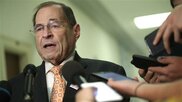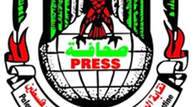23 july 2019

A Facebook profile photo of Rashad Darwish with his family.
Rashad “Rush” Darwish, a Palestinian American originally from the West Bank village of Bittin, near Ramallah, who announced in May his candidacy for a Democratic Party seat in the US Congress in the 2020 elections, was endorsed yesterday by the Palestinian-American Council in Chicago.
The Council said it will support Darwish in his bid and called on members to vote for him in the November 2020 elections.
Darwish, who owns Rush Productions, a small multimedia production company based in Chicago, will challenge veteran US Representative Dan Lipinski for his seat to represent the Illinois 3rd Congressional District.
Campaigning in Chicago, Darwish posted the following on his Facebook page. “My name is Rush Darwish. I am the son of immigrant parents. I am running for Congress because with all my heart and soul I stand strong with immigrants and want to protect the diversity of this country. I am standing in solidarity with the people at today’s Rally at Daley Plaza and every decent human being who stands against Donald Trump’s ideology of hate.
ICE (US Immigration and Customs Enforcement) has no place in Illinois and had no place in this country. As your next Congressman, I will join other leaders to make sure ICE is abolished and destroy any entity that separates kids from their families.”
Rashida Tlaib, a lawyer and also originally from the West Bank, was the first Palestinian American to win a seat serving as the US Representative for Michigan's 13th congressional district since January of this year after winning the midterm elections in 2018.
Rashad “Rush” Darwish, a Palestinian American originally from the West Bank village of Bittin, near Ramallah, who announced in May his candidacy for a Democratic Party seat in the US Congress in the 2020 elections, was endorsed yesterday by the Palestinian-American Council in Chicago.
The Council said it will support Darwish in his bid and called on members to vote for him in the November 2020 elections.
Darwish, who owns Rush Productions, a small multimedia production company based in Chicago, will challenge veteran US Representative Dan Lipinski for his seat to represent the Illinois 3rd Congressional District.
Campaigning in Chicago, Darwish posted the following on his Facebook page. “My name is Rush Darwish. I am the son of immigrant parents. I am running for Congress because with all my heart and soul I stand strong with immigrants and want to protect the diversity of this country. I am standing in solidarity with the people at today’s Rally at Daley Plaza and every decent human being who stands against Donald Trump’s ideology of hate.
ICE (US Immigration and Customs Enforcement) has no place in Illinois and had no place in this country. As your next Congressman, I will join other leaders to make sure ICE is abolished and destroy any entity that separates kids from their families.”
Rashida Tlaib, a lawyer and also originally from the West Bank, was the first Palestinian American to win a seat serving as the US Representative for Michigan's 13th congressional district since January of this year after winning the midterm elections in 2018.
21 july 2019

US House Judiciary Committee Chairman Rep. Jerry Nadler (D-NY) speaks to members of the media at Rayburn House Office Building on Capitol Hill June 26, 2019 in Washington, DC
The top Democrat on the US House Judiciary Committee said Sunday he believes there is "substantial evidence" that President Donald Trump committed high crimes and misdemeanors, and he plans to ask former Special Counsel Robert Mueller to present those facts at a congressional hearing on Wednesday.
"The report presents very substantial evidence that the president is guilty of high crime and misdemeanors, and we have to let Mueller present those facts to the American people and then see where we go from there," House Judiciary Committee Chairman Jerrold Nadler said on "Fox News Sunday."
"The administration must be held accountable, and no president can be above the law."
Nadler's comments are significant because evidence of such crimes would be required if Democrats pursue impeachment proceedings against the president.
Mueller completed his nearly two-year long probe into Russian meddling in the 2016 election in March, and the Justice Department released a redacted copy of his report in April.
In two nationally televised back-to-back hearings on Wednesday before the House Judiciary and Intelligence committees, Democrats are expected to try and get Mueller to focus his testimony on specific examples of Trump's misconduct.
By having Mueller lay bare the unflattering details of how Trump tried to stymie the investigation into his campaign, Democrats hope they can build support for their ongoing investigations into the president and potentially, impeachment proceedings.
Some Democrats in Congress support impeaching Trump, but they have not managed to win traction from House Democratic leadership including Speaker Nancy Pelosi, who has preferred a more cautious approach that entails conducting congressional fact-finding investigations into Trump's conduct.
Last week, the House voted 332-95 to table an impeachment resolution.
The Mueller report laid out numerous contacts between Russian officials and Trump's campaign, but found no evidence of a criminal conspiracy.
It also gave examples of 10 incidents in which Trump sought to hinder the investigation, but it did not draw any conclusions on whether Trump obstructed justice. Attorney General William Barr later concluded he did not see enough evidence to bring obstruction charges.
Whether Democrats will get Mueller to discuss Trump's conduct in detail remains to be seen.
Mueller has made it clear he has no desire to appear before Congress, saying the report is his testimony, and he is also notorious for being tight-lipped and for giving one-word answers in hearings.
Adam Schiff, the Chairman of the House Intelligence Committee, said on CBS' "Face the Nation" that part of the goal of the hearings is to ensure the American people who have not read the report can hear its findings.
"Most Americans in their busy lives haven't had the opportunity to read that report, and it is a pretty dry, prosecutorial work product. We want Bob Mueller to bring it to life... It's a pretty damning set of facts," he said.
Nadler said on Fox that Democrats plan to ask very specific questions about Trump's obstructive conduct and ask Mueller to read passages from the report aloud.
"We hope it won't end up being a dud," he said of the hearing.
Nadler also said on Sunday he planned to go to court "within a couple of days" after the Mueller hearings to enforce a subpoena, after the White House ordered former White House Counsel Don McGahn not to testify about incidents he witnessed which many say show Trump tried to obstruct justice.
The top Democrat on the US House Judiciary Committee said Sunday he believes there is "substantial evidence" that President Donald Trump committed high crimes and misdemeanors, and he plans to ask former Special Counsel Robert Mueller to present those facts at a congressional hearing on Wednesday.
"The report presents very substantial evidence that the president is guilty of high crime and misdemeanors, and we have to let Mueller present those facts to the American people and then see where we go from there," House Judiciary Committee Chairman Jerrold Nadler said on "Fox News Sunday."
"The administration must be held accountable, and no president can be above the law."
Nadler's comments are significant because evidence of such crimes would be required if Democrats pursue impeachment proceedings against the president.
Mueller completed his nearly two-year long probe into Russian meddling in the 2016 election in March, and the Justice Department released a redacted copy of his report in April.
In two nationally televised back-to-back hearings on Wednesday before the House Judiciary and Intelligence committees, Democrats are expected to try and get Mueller to focus his testimony on specific examples of Trump's misconduct.
By having Mueller lay bare the unflattering details of how Trump tried to stymie the investigation into his campaign, Democrats hope they can build support for their ongoing investigations into the president and potentially, impeachment proceedings.
Some Democrats in Congress support impeaching Trump, but they have not managed to win traction from House Democratic leadership including Speaker Nancy Pelosi, who has preferred a more cautious approach that entails conducting congressional fact-finding investigations into Trump's conduct.
Last week, the House voted 332-95 to table an impeachment resolution.
The Mueller report laid out numerous contacts between Russian officials and Trump's campaign, but found no evidence of a criminal conspiracy.
It also gave examples of 10 incidents in which Trump sought to hinder the investigation, but it did not draw any conclusions on whether Trump obstructed justice. Attorney General William Barr later concluded he did not see enough evidence to bring obstruction charges.
Whether Democrats will get Mueller to discuss Trump's conduct in detail remains to be seen.
Mueller has made it clear he has no desire to appear before Congress, saying the report is his testimony, and he is also notorious for being tight-lipped and for giving one-word answers in hearings.
Adam Schiff, the Chairman of the House Intelligence Committee, said on CBS' "Face the Nation" that part of the goal of the hearings is to ensure the American people who have not read the report can hear its findings.
"Most Americans in their busy lives haven't had the opportunity to read that report, and it is a pretty dry, prosecutorial work product. We want Bob Mueller to bring it to life... It's a pretty damning set of facts," he said.
Nadler said on Fox that Democrats plan to ask very specific questions about Trump's obstructive conduct and ask Mueller to read passages from the report aloud.
"We hope it won't end up being a dud," he said of the hearing.
Nadler also said on Sunday he planned to go to court "within a couple of days" after the Mueller hearings to enforce a subpoena, after the White House ordered former White House Counsel Don McGahn not to testify about incidents he witnessed which many say show Trump tried to obstruct justice.

Palestinian BDS National Committee (BNC) / United States
The BDS movement for Palestinian rights warmly welcomes the resolution introduced by Congress members Ilhan Omar, Rashida Tlaib and US civil rights veteran John Lewis “Affirming that all Americans have the right to participate in boycotts in pursuit of civil and human rights.”
On behalf of the BDS movement, Hind Awwad said:
This ground-breaking resolution will inspire human rights defenders everywhere, including BDS activists for Palestinian rights. It affirms the right of all activists and people of conscience to advocate for human rights through boycotts against systems of oppression.
It reassures us that progressives, including in Congress, are defending freedom of expression and the right of oppressed communities, including Palestinians, to peacefully fight for their rights.
The defense of those rights is even more vital in light of the rise of far-right racism and white supremacy, including Israel’s decades-old apartheid regime.
The BDS movement for Palestinian rights warmly welcomes the resolution introduced by Congress members Ilhan Omar, Rashida Tlaib and US civil rights veteran John Lewis “Affirming that all Americans have the right to participate in boycotts in pursuit of civil and human rights.”
On behalf of the BDS movement, Hind Awwad said:
This ground-breaking resolution will inspire human rights defenders everywhere, including BDS activists for Palestinian rights. It affirms the right of all activists and people of conscience to advocate for human rights through boycotts against systems of oppression.
It reassures us that progressives, including in Congress, are defending freedom of expression and the right of oppressed communities, including Palestinians, to peacefully fight for their rights.
The defense of those rights is even more vital in light of the rise of far-right racism and white supremacy, including Israel’s decades-old apartheid regime.
20 july 2019

The Palestinian Journalists Syndicate (PJS) reasserted last night its position that opposes any meetings between Palestinian journalists and officials from the administration of US President Donald Trump.
It said in a statement reiterating an earlier similar positon that it was following closely attempts by the US embassy in Israel to invite Palestinian journalists for meetings with US officials, including Jarod Kushner, senior advisor to Trump and his son-in-law and author of the so-called Deal of the Century, strongly opposed by the Palestinians for being overly biased toward Israel.
The PJS said it was proud of the journalists and media organizations that had previously refused to respond to invitations by the White House for meetings.
It said it was “confident of the failure of the new call to meet Kushner or other promoters of the Trump deal,” saying that the purpose behind these invitations is to “disseminate venom and false rumors, and to deceive Palestinian public opinion.”
It called on all journalists to abide by the positon of the syndicate and the national consensus on this matter that calls for boycott of any meeting with members of the current US administration who have adopted the Israeli position from the occupied Palestinian territories and who refuse to recognize any of the Palestinian national rights.
The syndicate said the Trump administration, which has appointed an official and opened a department to follow up on the Palestinian media and public opinion, has begun inviting journalists, focusing on the young ones, for a tour of the United States and meetings with officials in November.
It said all invitations were rejected, applauding the journalists for not falling for the US trap.
It said in a statement reiterating an earlier similar positon that it was following closely attempts by the US embassy in Israel to invite Palestinian journalists for meetings with US officials, including Jarod Kushner, senior advisor to Trump and his son-in-law and author of the so-called Deal of the Century, strongly opposed by the Palestinians for being overly biased toward Israel.
The PJS said it was proud of the journalists and media organizations that had previously refused to respond to invitations by the White House for meetings.
It said it was “confident of the failure of the new call to meet Kushner or other promoters of the Trump deal,” saying that the purpose behind these invitations is to “disseminate venom and false rumors, and to deceive Palestinian public opinion.”
It called on all journalists to abide by the positon of the syndicate and the national consensus on this matter that calls for boycott of any meeting with members of the current US administration who have adopted the Israeli position from the occupied Palestinian territories and who refuse to recognize any of the Palestinian national rights.
The syndicate said the Trump administration, which has appointed an official and opened a department to follow up on the Palestinian media and public opinion, has begun inviting journalists, focusing on the young ones, for a tour of the United States and meetings with officials in November.
It said all invitations were rejected, applauding the journalists for not falling for the US trap.

Hamas's spokesman Sami Abu Zuhri has denounced the latest statements by the US Special Representative for International Negotiations Jason Greenblatt's on the West Bank settlements.
"Greenblatt's remarks that the West Bank is not occupied and that Israeli settlements are "Jewish neighborhoods" are rude," adding that these statements confirm that Donald Trump's administration is clearly biased against the Palestinians.
"Israel is actually more the victim than the party that's responsible" for the Middle East conflict, said Greenblatt in an interview with PBS on Wednesday.
Greenblatt rejected using the word "settlements", adding he prefers to refer to the Jewish communities established on Palestinian lands in the West Bank as "neighborhoods and cities." He also rejected the term "occupied" to describe the West Bank. "I would argue that the land is disputed," he said.
"Greenblatt's remarks that the West Bank is not occupied and that Israeli settlements are "Jewish neighborhoods" are rude," adding that these statements confirm that Donald Trump's administration is clearly biased against the Palestinians.
"Israel is actually more the victim than the party that's responsible" for the Middle East conflict, said Greenblatt in an interview with PBS on Wednesday.
Greenblatt rejected using the word "settlements", adding he prefers to refer to the Jewish communities established on Palestinian lands in the West Bank as "neighborhoods and cities." He also rejected the term "occupied" to describe the West Bank. "I would argue that the land is disputed," he said.
19 july 2019

Palestinians have shown impressive unity and resistance to the US ‘deal of the century’, but to sustain it, they need a clear vision for the future
Packaging this week’s US-led “Peace to Prosperity” workshop in the Bahraini capital as the “economic” component of the Trump administration’s Middle East plan is profoundly misleading, as economics and politics are interdependent.
All parts of the US “deal of the century” are thoroughly political, aiming to de-recognise Palestinian national rights and aspirations for freedom one the one hand, and recognise Israeli colonialism as legitimate and eternal on the other. The political ambitions are self-evident, even from the title of the workshop, which plainly abandons the “land for peace” principle that has theoretically been the lynchpin of the Arab-Israeli peace process since 1967.
Stalled peace process
This annuls the pretence of the peace process and removes the land and the colonial facts on the ground from the equation, paving the way for an Israeli-determined so-called regional "economic peace", as laid out by Israeli Prime Minister Benjamin Netanyahu a decade ago.
The workshop is a reworked version of Netanyahu’s speech which echoes an old Zionist political vision to impose “Jewish domination [over the Palestinians] in exchange of nominal economic benefits”, as Joseph Massad brilliantly demonstrates. By exchanging territory-based national sovereignty for financial capital, the economic workshop is already determining the terms of the political component.
Amid Israel’s ongoing legislative process of annexing Palestinian land, the intended consequence of this process is to nullify the prospect of Palestinian self-determination over any part of historic Palestine.
It is no coincidence that the widespread discussion over the “deal of the century” has emerged as the peace process has reached an impasse. The Trump administration’s “deal” discourse has been filling a vacuum left by the non-existent peace process, keeping everyone distracted for years.
It is therefore cogent to approach the Deal of the Century as an imperial organised discourse, rather than a single declaration, document or event. In particular, this discourse revives, repackages and authorises the Israeli “economic peace” paradigm in order to sustain the subjugation of the Palestinians.
A needed distraction
While the narrative of the peace process and two-state solution has provided a needed distraction to facilitate Israel’s steady settler-colonial expansion, the “deal” discourse formalises these colonial achievements as self-evident truths and irreversible facts.
The US and Israel, two settler-colonies, are promulgating the “deal” discourse to eliminate Palestinian political rights and aspirations, as a prelude to legalising an everlasting Israeli colonisation of Palestinian and Arab land.
The second and more harmful function of the “deal” discourse is that it negates Palestinians’ national and historic rights. While conceding no substance to the Palestinians, the deal's discourse displaces their rights for statehood, sovereignty, East Jerusalem, economic independence, right of return, and recognition as a political and sovereign nation like others. Simultaneously, the phasing out of UNRWA, the United Nations agency that provides aid to Palestinian refugees, aims to deprive these refugees of their status and rights.
The US has orchestrated economic, diplomatic and psychological attacks to troll and humiliate Palestinians, representing them as lacking and “incapable” of governing themselves, and therefore it is “a high bar” for them to be free from Israeli trusteeship. All they deserve is an “opportunity to live a better life” at the threshold of basic material needs, as the White House senior advisor Jared Kushner put it.
This arrogance and demeaning misrecognition, coming out of the White House towards the Palestinians belong to the colonial era when imposing depreciating self-images was a means to psychologically damage and dehumanise subjugated people, as the celebrated anti-colonial thinker Frantz Fanon vigorously argued.
The pursuit of justice
At the Bahrain conference, Palestinians are represented by others as a mere bunch of individuals, short of a political and national agency.
They are excluded precisely because their political and national elimination is at stake. Thus, the profound implication of that workshop- and the deal discourse- sets the ground for non-recognition of the Palestinians as a people.
That is exactly why the Palestinians steadfastly and unitedly are resisting this endeavour. In fact, resistance is their only choice, for acceptance of the deal discourse, economic or political, is tantamount to self-denial. Because the “deal” is not a singular event but an organised discourse, resistance must be built on a clear direction, vision and intellectual underpinning in order to sustain it and enforce decolonisation.
The closure of the “peace process” chapter provides many reasons for optimism. Most significant is the dissolution of the conditions that have fragmented Palestinians and crippled their political institutions. Popular struggle, resistance and steadfastness in the pursuit of justice, freedom, human rights and dignity for all is the only acceptable and winnable vision, as Edward Said powerfully argued. No amount of power can destroy the idea of Palestinian liberation and self-determination.
Packaging this week’s US-led “Peace to Prosperity” workshop in the Bahraini capital as the “economic” component of the Trump administration’s Middle East plan is profoundly misleading, as economics and politics are interdependent.
All parts of the US “deal of the century” are thoroughly political, aiming to de-recognise Palestinian national rights and aspirations for freedom one the one hand, and recognise Israeli colonialism as legitimate and eternal on the other. The political ambitions are self-evident, even from the title of the workshop, which plainly abandons the “land for peace” principle that has theoretically been the lynchpin of the Arab-Israeli peace process since 1967.
Stalled peace process
This annuls the pretence of the peace process and removes the land and the colonial facts on the ground from the equation, paving the way for an Israeli-determined so-called regional "economic peace", as laid out by Israeli Prime Minister Benjamin Netanyahu a decade ago.
The workshop is a reworked version of Netanyahu’s speech which echoes an old Zionist political vision to impose “Jewish domination [over the Palestinians] in exchange of nominal economic benefits”, as Joseph Massad brilliantly demonstrates. By exchanging territory-based national sovereignty for financial capital, the economic workshop is already determining the terms of the political component.
Amid Israel’s ongoing legislative process of annexing Palestinian land, the intended consequence of this process is to nullify the prospect of Palestinian self-determination over any part of historic Palestine.
It is no coincidence that the widespread discussion over the “deal of the century” has emerged as the peace process has reached an impasse. The Trump administration’s “deal” discourse has been filling a vacuum left by the non-existent peace process, keeping everyone distracted for years.
It is therefore cogent to approach the Deal of the Century as an imperial organised discourse, rather than a single declaration, document or event. In particular, this discourse revives, repackages and authorises the Israeli “economic peace” paradigm in order to sustain the subjugation of the Palestinians.
A needed distraction
While the narrative of the peace process and two-state solution has provided a needed distraction to facilitate Israel’s steady settler-colonial expansion, the “deal” discourse formalises these colonial achievements as self-evident truths and irreversible facts.
The US and Israel, two settler-colonies, are promulgating the “deal” discourse to eliminate Palestinian political rights and aspirations, as a prelude to legalising an everlasting Israeli colonisation of Palestinian and Arab land.
The second and more harmful function of the “deal” discourse is that it negates Palestinians’ national and historic rights. While conceding no substance to the Palestinians, the deal's discourse displaces their rights for statehood, sovereignty, East Jerusalem, economic independence, right of return, and recognition as a political and sovereign nation like others. Simultaneously, the phasing out of UNRWA, the United Nations agency that provides aid to Palestinian refugees, aims to deprive these refugees of their status and rights.
The US has orchestrated economic, diplomatic and psychological attacks to troll and humiliate Palestinians, representing them as lacking and “incapable” of governing themselves, and therefore it is “a high bar” for them to be free from Israeli trusteeship. All they deserve is an “opportunity to live a better life” at the threshold of basic material needs, as the White House senior advisor Jared Kushner put it.
This arrogance and demeaning misrecognition, coming out of the White House towards the Palestinians belong to the colonial era when imposing depreciating self-images was a means to psychologically damage and dehumanise subjugated people, as the celebrated anti-colonial thinker Frantz Fanon vigorously argued.
The pursuit of justice
At the Bahrain conference, Palestinians are represented by others as a mere bunch of individuals, short of a political and national agency.
They are excluded precisely because their political and national elimination is at stake. Thus, the profound implication of that workshop- and the deal discourse- sets the ground for non-recognition of the Palestinians as a people.
That is exactly why the Palestinians steadfastly and unitedly are resisting this endeavour. In fact, resistance is their only choice, for acceptance of the deal discourse, economic or political, is tantamount to self-denial. Because the “deal” is not a singular event but an organised discourse, resistance must be built on a clear direction, vision and intellectual underpinning in order to sustain it and enforce decolonisation.
The closure of the “peace process” chapter provides many reasons for optimism. Most significant is the dissolution of the conditions that have fragmented Palestinians and crippled their political institutions. Popular struggle, resistance and steadfastness in the pursuit of justice, freedom, human rights and dignity for all is the only acceptable and winnable vision, as Edward Said powerfully argued. No amount of power can destroy the idea of Palestinian liberation and self-determination.
Page: 28 - 27 - 26 - 25 - 24 - 23 - 22 - 21 - 20 - 19 - 18 - 17 - 16 - 15 - 14 - 13 - 12 - 11 - 10 - 9 - 8 - 7
